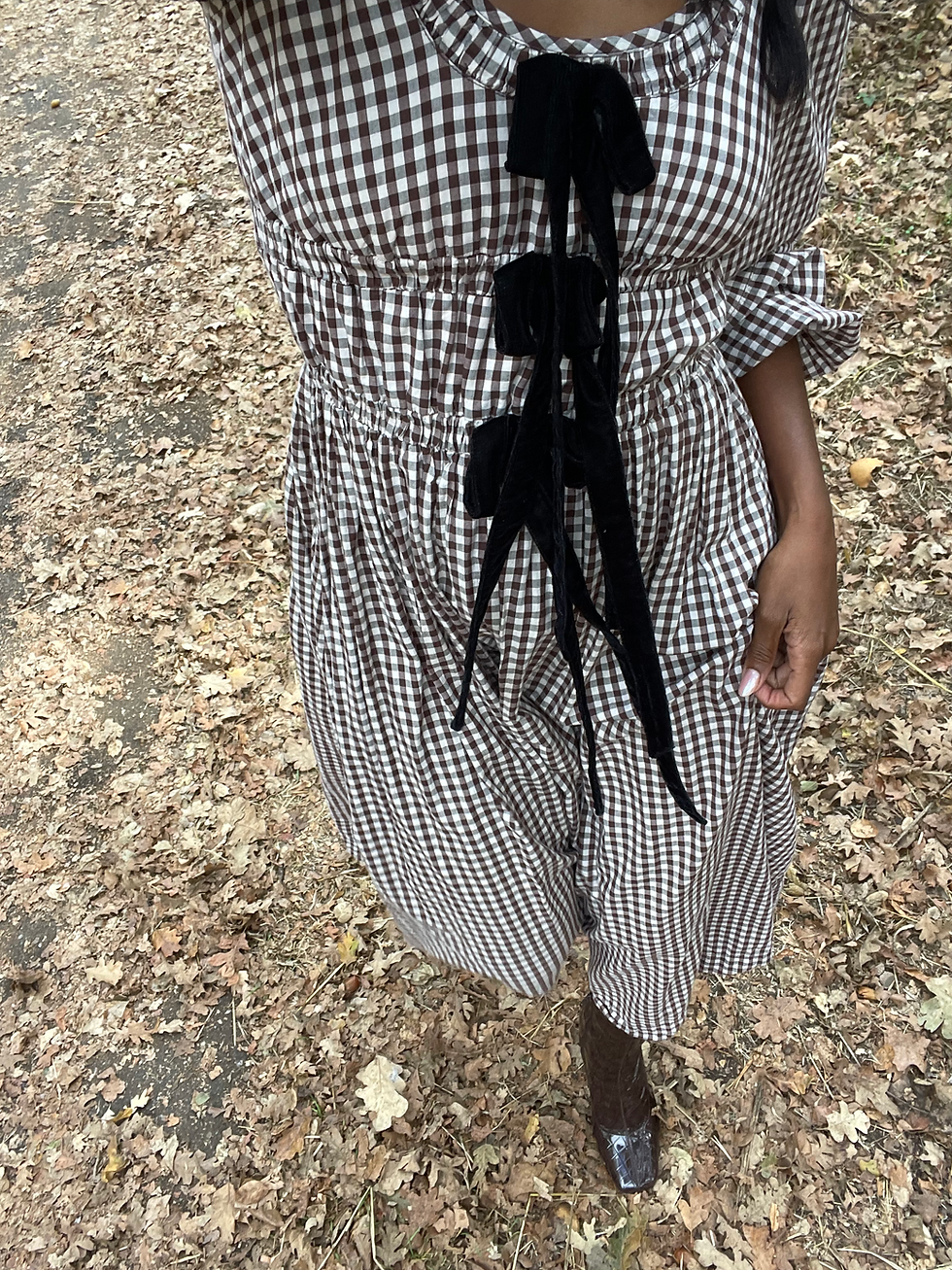Gardening 101: Where & How to Start
- Jan 22, 2023
- 6 min read
Updated: May 9, 2023
In February of 2021, I took a run of the mill trip to Big Sur with my mom. I say "run of the mill", because making the 3 hour trek down to my favorite little forest town in California is something that I've been doing since 2015.
Every time I'm there, I always stop in the same little shop adjacent to the Big Sur Bakery. Mother is a stunning botanical shop that sells bath salts, sage, candles, books on nature, handmade goodies and various seeds for gardening.
I stopped by the garden section, a section I had ignored on my previous trips, and took a look at the different kinds of seeds for sale. Randomly, I selected Calendulas. I had never heard of them before. Didn't know anything about them, but they were pretty! And I thought it might be nice to have a pot of flowers to put in my room or on the dining room table.

I had no idea that those calendula seeds, would spark a two year love affair with gardening and a deeper appreciation and love for all flowers.
I started out by sewing a few seeds in a little white pot I had purchased from Home Goods, and within a week or so, I could see tiny heads of green peeking up above the soil.
This might sound dramatic, but the only other time I remember being that excited about something, was when I got engaged.
Seeing this plant that I grew begin to sprout and come to life was euphoric.
Every morning, the first thing I did was head to the backyard to check on them, water them, talk to them, and watch them grow.
Soon, they became too large for my little white pot. And I recruited my fiance to build me a raised bed. Which he did beautifully, I might add.
I was terrified to take them out of their home, but my mom assured me that if I grabbed them by the root and sowed them properly into the raised bed, they would be fine. And she was right.
Within weeks, my raised bed was overflowing with yellow and orange calendulas. I had so many I didn't know what to do with them!
I began looking up the benefits of calendula flower and learned that they're incredibly useful in skincare and are a main ingredient in many skincare products.
Growing calendulas gave me the confidence to branch out into growing other things. I planted a few sunflowers which bloomed beautifully, and started an herb garden which I'm incredibly proud of. And I have tulip buds sprouting as we speak.
I have big plans for my garden, (which I will discuss at a later date 😏). But for now, I'm enjoying learning as much as I can and being able to create my own arrangements and use herbs I've grown in my cooking.
Luckily, I documented this whole process with photos. Keep reading to see my calendulas go from little babies to beautiful blooms.


My calendulas when they began sprouting!


Too big for the pot!

Moving them into the raised bed!

Flower buds spotted!

My stunning calendulas today!
I get so many questions about how to start with gardening, and before I give any tips, please know...I am NO expert. I'm still learning and I have a long way to go before I can call myself a flower farmer.
But I wanted to give a few tips about how to start, where to start, and offer some advice I've learned along this journey.
What You'll Need
To get started, there are a few items you should have. You don't need to spend a lot of money, but some things just make this whole process easier.
Seeds: Obviously, you'll need seeds. I suggest researching flowers that are resilient and sprout easily. That will give you the confidence you'll need to continue! The flowers that are easiest to grow are:
Marigolds
Pansies
Sunflowers
Calendulas
Nigella
Poppies
Petunias
When I looked on the back of the seeds I purchased at Mother, I learned that they came from Baker Creek. And a quick google search led me to their website. I've bought quite a few seeds from them now, and I am a huge fan of their selection.
Johnny's Select Seeds are another brand that I haven't tried myself, but I love their selection. I also like that they have the option to buy one packet, 250 seeds, 1,000 seeds, etc.
Tools: You don't need as many tools as you think you do. Of course there are things that will make gardening a little easier, but in my experience all you need is lots of water and sunlight, gloves, scissors and a few pots to get started.
Anthropologie and Etsy have some adorable designs for garden gloves!
I just adore this planter from Julia Berolzheimer's collection with Pottery Barn. I will
definitely be grabbing a few of these for myself while they're on sale!
(*Tip- When planting in a planter that doesn't have its own draining system, (like holes at the bottom of the pot), you can create a false drainage by putting some small rocks in the bottom of the pot before adding your soil. This will give the water somewhere to go instead of over-saturating your soil and killing your seeds.)
If you're feeling confident and want to dive feet first, you can go so far as to buy a raised bed for yourself. You can either sow your seeds directly into the bed or you'll have it ready for when the flowers outgrow their pots.
There are many different kinds of raised beds. Wooden, steel, plastic etc. I like the look of wood because I find it to blend nicely with the natural background. But any style will do! I even have a few that are just plastic storage bins I bought at Home Depot. This is a great, cost effective way to get started with gardening.
Plastic however, isn't very durable. And the longer it sits in the sun, the more fragile it becomes. My herbs are currently in a plastic storage bin, and it's completely falling apart. I will need to uproot them when I'm ready, as I won't be able to transport the plastic container to another location without it falling apart.
Soil: The soil you use for your plants is incredibly important. You want to make sure you have high quality soil, organic if possible, so that your plants can thrive. Back in the Fall, I tried growing some vegetables in soil that wasn't what I normally use and only one squash plant took. (It later died due to a heat wave).
For flowers, you'll want to find the soil that says "Potting Mix", and has pictures of flowers on the cover. That sounds obvious, but making sure that the soil is meant for flowers instead of vegetables will be very helpful.
A few ways to tell if your soil is healthy:
Mushrooms! I had no idea about this until a few days ago when an eerie looking shroom popped up in my tulip garden. Apparently mushrooms are a sign of healthy soil and a great indication that your seeds are doing just fine.
Worms. The icky little creatures are another sign of healthy soil. This is another great reason to buy gloves. There's nothing more alarming than digging around and ending up with a slimy worm on your hand. Not fun!
Widespread roots. Once your seeds get going, a great way to tell if your soil is healthy is if the roots are spreading! The underground ecosystem is so enthralling. A whole world is going on down there, and if it's healthy, the roots will be active.
What NOT To Do
I've learned so much in terms of what not to do when gardening, and I'm sure I'll continue to make more mistakes and learn even more! But here are a few things to avoid when starting your gardening journey.
First, try not to obsess. It will be hard. Especially if you're as impatient as I am. Just be sure that your soil is healthy, your flowers have adequate sunlight, and you're watering them as much as is needed. If you obsess too much, you'll be disappointed if it doesn't work out the way you're hoping. Do what you can do, and leave the rest up to faith and nature.
Second, don't disturb the soil!! I've been learning this the hard way recently. I'm embarrassed to admit that sometimes I get so impatient, I'll dig up a little of the soil to see if the seeds are sprouting. This is a bad idea as it disturbs the process and you might accidentally rip something up that's necessary for the growth of the plant. Again, do the best you can, and then hope for the best.
Third, don't under water the plants. When planting flowers, or anything really, they need a lot of water in the first few weeks in order to germinate. Don't worry about over watering in those first few weeks. They NEED the water!
Gardening is truly so much fun and so rewarding. I hope this gave you an idea of how and where to start!
To follow my gardening journey, be sure to follow along on Instagram, and subscribe to my second YouTube channel The Fancy Diaries, where I'll be documenting my garden this year!
xo,
F.










Comments